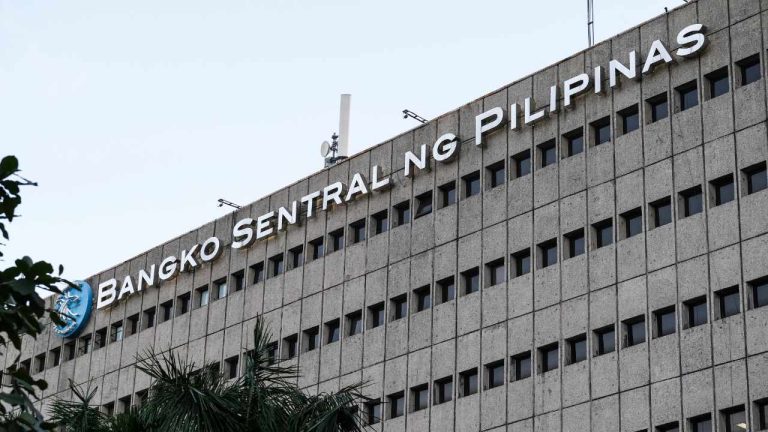 The Argentine securities watchdog (CNV) announced the official launch of Argentina’s Virtual Assets Service Provider (VASP) Registry, allowing almost 100 companies and individuals to apply to be authorized to offer digital assets linked services in the country. The registry will remain open for more companies to submit their application, given that the regulator will only […]
The Argentine securities watchdog (CNV) announced the official launch of Argentina’s Virtual Assets Service Provider (VASP) Registry, allowing almost 100 companies and individuals to apply to be authorized to offer digital assets linked services in the country. The registry will remain open for more companies to submit their application, given that the regulator will only […]
A prominent US-based crypto exchange platform is venturing into Europe’s fifth-largest economy after acquiring the proper registration. In a new press release, crypto trading platform Kraken announced that it has obtained VASP (Virtual Asset Service Provider) registration from the Dutch Central Bank (DCB), allowing it to expand its services into the Netherlands. VASP licenses give crypto […]
The post US-Based Crypto Exchange Cracks Into Europe’s Fifth-Largest Economy With VASP Registration appeared first on The Daily Hodl.

Blockchain-based payments firm Ripple Labs can now provide certain digital asset services in Ireland. In a new statement, the San Francisco-based firm says the Central Bank of Ireland (CBI) has just granted its local subsidiary, Ripple Markets Ireland Limited, the license to operate as a Virtual Asset Service Provider (VASP). VASPs can carry out transactions […]
The post Central Bank of Ireland Adds Ripple to List of Registered Virtual Asset Service Providers appeared first on The Daily Hodl.

Institutional cryptocurrency custodian Hex Trust adds Dubai to its list of operational jurisdictions in addition to Hong Kong, Singapore, Vietnam, Italy and France.
Hong Kong-founded institutional cryptocurrency asset custodian Hex Trust has been given the green light to offer virtual asset custodial services to institutional clients and investors in Dubai.
The firm, which established an office in the city in June 2022, received a full virtual asset service provider (VASP) license from Dubai’s Virtual Asset Regulatory Authority (VARA) on Nov. 15. The company had originally received a minimal viable product (MVP) operations license in Feb. 2023 and is now clear to offer its services in the jurisdiction.
Hex Trust’s Regional Director of MENA Filippo Buzzi notes that the approval sees the company join a growing but limited list of cryptocurrency exchanges and cryptocurrency service providers to be given the all-clear to operate in Dubai:
“Hex Trust is fully committed to expanding into the Middle East and sees enormous potential for digital asset growth given the progressive regulations, welcoming governments, and thriving crypto ecosystem in the region.”
Hex Trust co-founder and CEO Alessio Quaglini adds that the Emirate of Dubai presents a prime opportunity for businesses in the sector to grow and capitalize on the progressive regulatory approach of the region.
Related: Binance eyes United Arab Emirates as ‘focal point’ for future operations
France also granted the company regulatory approval to offer its services to companies in the country in Aug. 2023. Hex Trust has offices in Hong Kong, Singapore, Vietnam, Dubai, Italy and France.
MetaMask Institutional recently announced that Hex Trust was among four major cryptocurrency custodians integrated into its wallet and browser extension to provide custodial services to institutional clients.
Hex Trust’s announcement of its VASP license comes one day after crypto exchange Crypto.com’s Dubai entity was granted its VASP license by the city’s regulator, which is still pending operational approval.
Other prominent crypto exchanges that previously gained MVP or VASP licenses include Binance, Bybit, Laser Digital Middle East, BitOasis (suspended), OKX, Crypto.com, FTX (revoked) and Huobi.
Komainu, a joint venture between Nomura and crypto firms CoinShares and Ledger, is one the latest crypto firms to receive a full VASP license as recently as Aug. 2023. The company offers custodial and staking services to institutional grade clients.
The United Arab Emirates continues to attract cryptocurrency ecosystem participants, given its role out of federal grants and crypto-friendly regulations. Attaining a VARA license in Dubai is a three-step process requiring crypto exchanges to qualify for provisional approval, a minimal viable product (MVP) license and a full market product license.
Magazine: Exclusive: 2 years after John McAfee’s death, widow Janice is broke and needs answers

The license is pending operational approval and allows Crypto.com’s Dubai entity to offer exchange, broker-dealer, and lending and borrowing services.
Crypto exchange Crypto.com’s Dubai entity was granted a Virtual Assets Service Provider (VASP) license by the city’s regulator, pending operational approval.
In a Nov. 14 press release, Crypto.com said that once fully approved by Dubai’s Virtual Assets Regulatory Authority (VARA), its local business CRO DAX Middle East FZE can offer retail and institutional investors exchange, broker-dealer, and lending and borrowing services.
https://t.co/vCNztATkNg is proud to announce that we have been granted a Virtual Asset Service Provider Licence from Dubai's Virtual Assets Regulatory Authority, building on our position in the #UAE market.
— Crypto.com (@cryptocom) November 14, 2023
Learn more:https://t.co/0anXDLsxTv pic.twitter.com/EcgXCGEkMm
Crypto.com CEO Kris Marszalek said in a statement that it looks forward to working with regulators to contribute to Dubai’s crypto industry and said the city is a “leading market when designing effective regulation.”
In March 2022, the exchange pinned Dubai as its Middle East and North Africa hub. It received a provisional license from VARA in June 2022, followed by a minimal viable product (MVP) preparatory license in March this year.
Related: Standard Chartered’s venture arm to set up crypto fund in UAE
With United States regulators taking action against crypto firms, Dubai has become a sought-after destination for crypto businesses seeking legal clarity — with many firms eyeing the crypto-friendly jurisdiction as an emerging digital assets hub in the Middle East.
Binance Dubai General Manager Alex Chehad said that unlike the U.S., Dubai and the United Arab Emirates have provided a clear regulatory framework for crypto firms to follow, which made it easier for large companies like Binance to establish permanent headquarters in the region.
Magazine: Exclusive — 2 years after John McAfee’s death, widow Janice is broke and needs answers

The crypto Travel Rule, which came into effect on Sept. 1, aims to stop anti-money laundering and counter-terrorist financing activities carried out on-chain.
Cryptoasset businesses in the United Kingdom could now begin withholding certain crypto transfers to comply with the new Travel Rule for crypto that came into effect on Sept. 1.
The rules targeting virtual asset service providers were first introduced by the Financial Conduct Authority on Aug. 17, and see to it that VASPs based in the U.K. will “collect, verify and share information” relating to crypto-asset transfers.
If an inbound payment is received from a person or entity from an overseas jurisdiction that hasn’t implemented the Travel Rule, the VASP must make a “risk-based assessment” as to “whether to make the cryptoassets available to the beneficiary.”
The Travel Rule is designed to bring greater transparency to cryptoasset transfers, making it harder for criminals to use #crypto for illegal activity.https://t.co/kmB6rgMn5e
— Financial Conduct Authority (@TheFCA) August 17, 2023
The same rule would also apply to Brits looking to send payments outside of the U.K.
The Travel Rule was created by the UN agency Financial Action Task Force in June 2019. The U.K. passed legislation to begin enforcing the Travel Rule in July 2022.
It attempts to prevent anti-money laundering (AML) and counter-terrorist financing (CTF) activities carried out on-chain.
Other countries that have adopted the Travel Rule include the US, Germany, Japan, Singapore, Switzerland, Canada, South Africa, the Netherlands and Estonia, according to Sygna.io.
Related: Crypto ads face stricter rules, referral bonus ban by UK FCA
On June 23, the FATF called out member states for failing to sufficiently implement the rule after a survey revealed more than half of them have failed to take any action towards implementing the rule.
A March 2022 survey by FATF found only 29 of 98 jurisdictions at the time passed the requirements needed as part of the travel rules and a small subset of these jurisdictions had started enforcement.
Ian Andrews, the chief marketing officer of blockchain forensics platform Chanalysis explained in April 2022 that coordinating the exchange of information between VASPs cross-borders will be a “pretty hard problem” to solve — at least at the onset.
Magazine: Deposit risk: What do crypto exchanges really do with your money?

The exchange's chief marketing officer believes Australians are above-the-curve when it comes to crypto education and interest.
Seychelles-based crypto exchange OKX has signaled its intention to expand its crypto services to Australia, a country it believes is primed to take on the next wave of crypto adoption.
The trading platform explained in a March 29 statement that Australia would be a key growth market for the firm moving forward. The firm states it provides services to over 100 countries. In July 2022, it secured a provisional license in Dubai.
"We see Australia as an indispensable part of this strategy and a key growth market. With such a strong uptake of crypto in Australia already, we're committed to the local market and aim to build a strong local office,” the firm wrote in a statement.
BIG NEWS
— OKX (@okx) March 29, 2023
Super excited to announce that OKX will be opening an office in Australia!
We had an awesome time celebrating in Melbourne with OKX partners @danielricciardo, @scottyjames31, and McLaren F1 driver @oscarpiastri.
Find out more https://t.co/Sg3rGvSjhD pic.twitter.com/FpmSOhLvXt
Haider Rafique, the chief marketing officer of OKX told Cointelegraph that the decision to expand "Down Under" was driven by a “huge appetite” of Australians for more crypto investment and trading products:
“What I’ve interestingly found over the last 5-6 years is that Australian retail investors certainly show a huge appetite for exploring crypto as an investment vehicle and also for trading. When I came to OKX, I certainly saw that in terms of web traffic and people from Australia trying to explore OKX services.”
Rafique believes Australians are above-the-curve in terms of crypto education, which he hopes will make OKX’s move into the market all the more smooth.
“They’re pretty familiar with crypto, the value of blockchain, the promise that it holds in the future, and I think from us as a company, it makes it really intriguing for us to extend our services in this market,” he said, adding:
“I think the value creation we can do for Australians will ultimately lift all boats.”

A September 2022 survey from Australian crypto exchange Swyftx found that about 1 million Aussies are expected to enter into crypto for the first time within the next 12 months, which represents about 4% of the country’s population.
Rafique said he was also impressed with Australia’s crypto startup scene.
Celebrations in Melbourne are in full swing as #OKX announced opening our office in Australia!
— OKX (@okx) March 29, 2023
Big s/o to OKX partners @danielricciardo, @scottyjames31, @oscarpiastri, our team & frens for joining the fun pic.twitter.com/m9rvVOmwYq
It is understood that the trading firm has not yet registered with AUSTRAC, the licensing regime required to offer cryptocurrency services in Australia.
OKX was not in a position yet to share where the Australian office would potentially be located or how large the team would be. OKX currently employs over 1,750 staff, according to LinkedIn.
Related: OKX latest proof of reserves reveals $8.9B in assets
OKX is in the process of applying for a Virtual Asset Service Provider (VASP) license in Hong Kong too, Rafique confirmed.
The expansion plan into Australia and Hong Kong comes as OKX recently announced plans to cease its services to Canadians in June.
Magazine: Can you trust crypto exchanges after the collapse of FTX?
 Argentina is preparing to revamp its anti-money laundering and terrorism financing law. It has proposed to include the creation of a registry for virtual asset services providers (VASPs) in the country as part of the new modifications. The changes would prepare the country for the review that the Financial Action Task Force (FATF) is slated […]
Argentina is preparing to revamp its anti-money laundering and terrorism financing law. It has proposed to include the creation of a registry for virtual asset services providers (VASPs) in the country as part of the new modifications. The changes would prepare the country for the review that the Financial Action Task Force (FATF) is slated […] A new cryptocurrency bill project was introduced by the executive power to the Parliament of Uruguay. The bill seeks to clarify how crypto assets will be regulated in the country, giving the Central Bank of Uruguay competence over cryptocurrency assets, modifying its organic charter, and introducing the Superintendence of Financial Services as the organization to […]
A new cryptocurrency bill project was introduced by the executive power to the Parliament of Uruguay. The bill seeks to clarify how crypto assets will be regulated in the country, giving the Central Bank of Uruguay competence over cryptocurrency assets, modifying its organic charter, and introducing the Superintendence of Financial Services as the organization to […] The central bank of the Philippines, Bangko Sentral ng Pilipinas, has announced that it will stop accepting crypto license applications for three years, starting next month. The central bank is the primary regulator of the crypto sector in the Philippines. Philippines Halts Accepting Crypto License Applications The Philippine central bank, Bangko Sentral ng Pilipinas, announced […]
The central bank of the Philippines, Bangko Sentral ng Pilipinas, has announced that it will stop accepting crypto license applications for three years, starting next month. The central bank is the primary regulator of the crypto sector in the Philippines. Philippines Halts Accepting Crypto License Applications The Philippine central bank, Bangko Sentral ng Pilipinas, announced […]